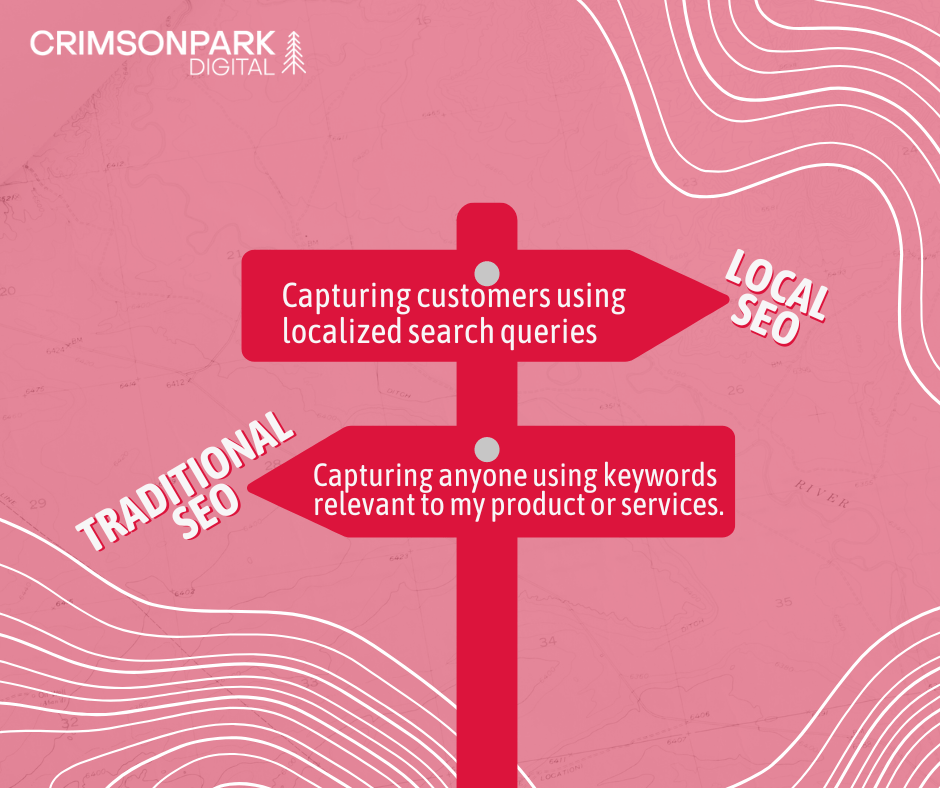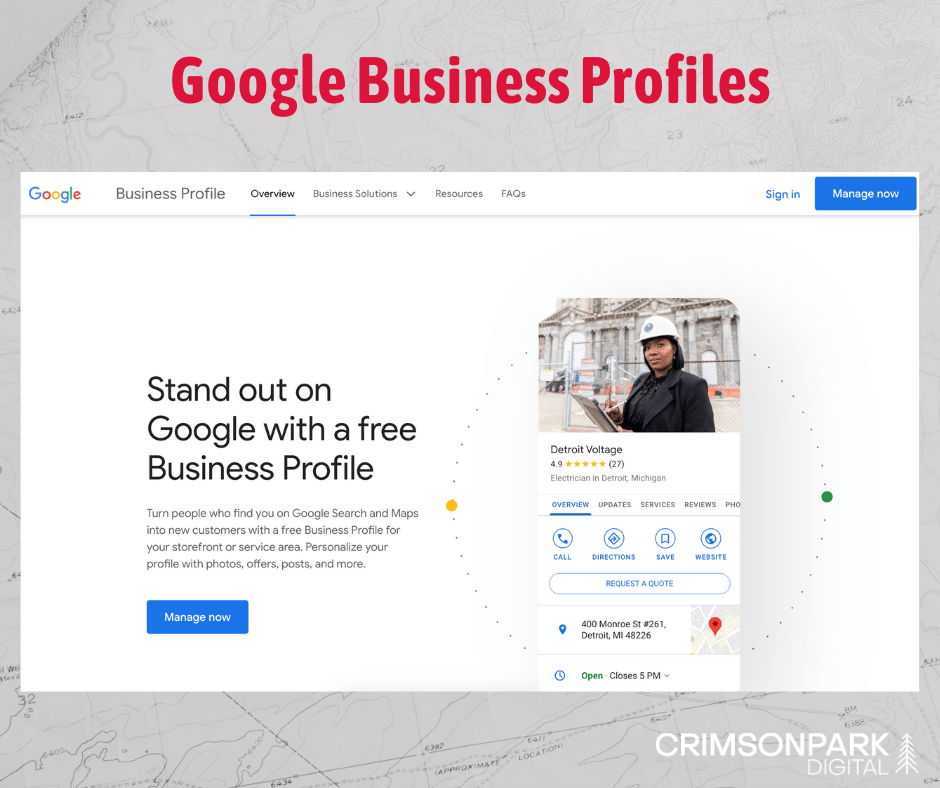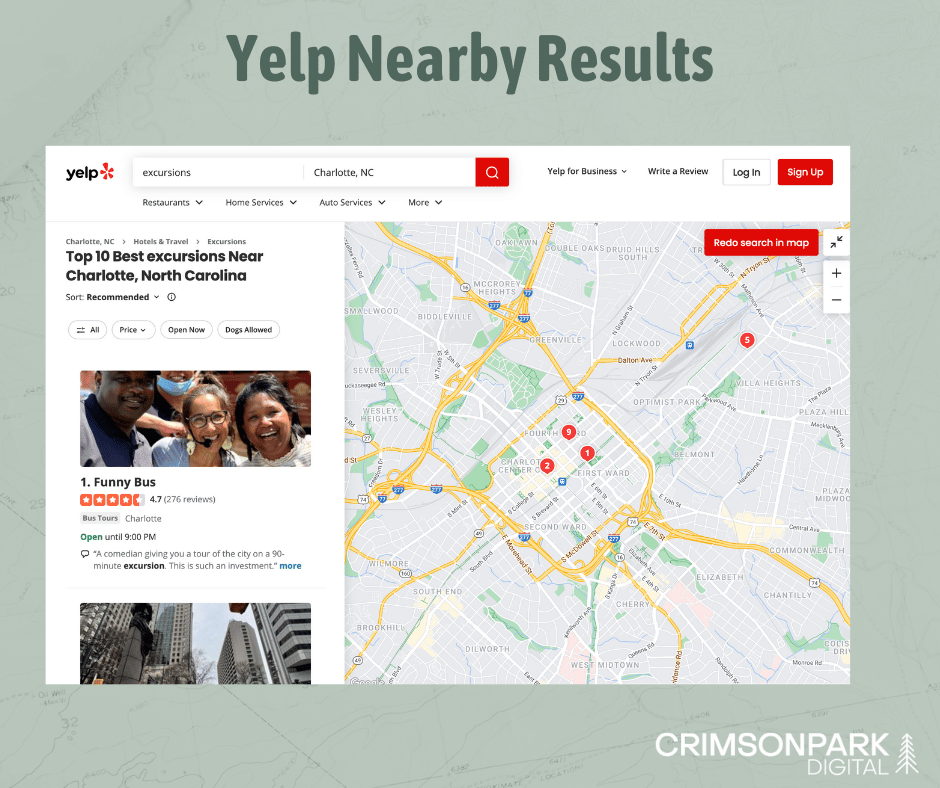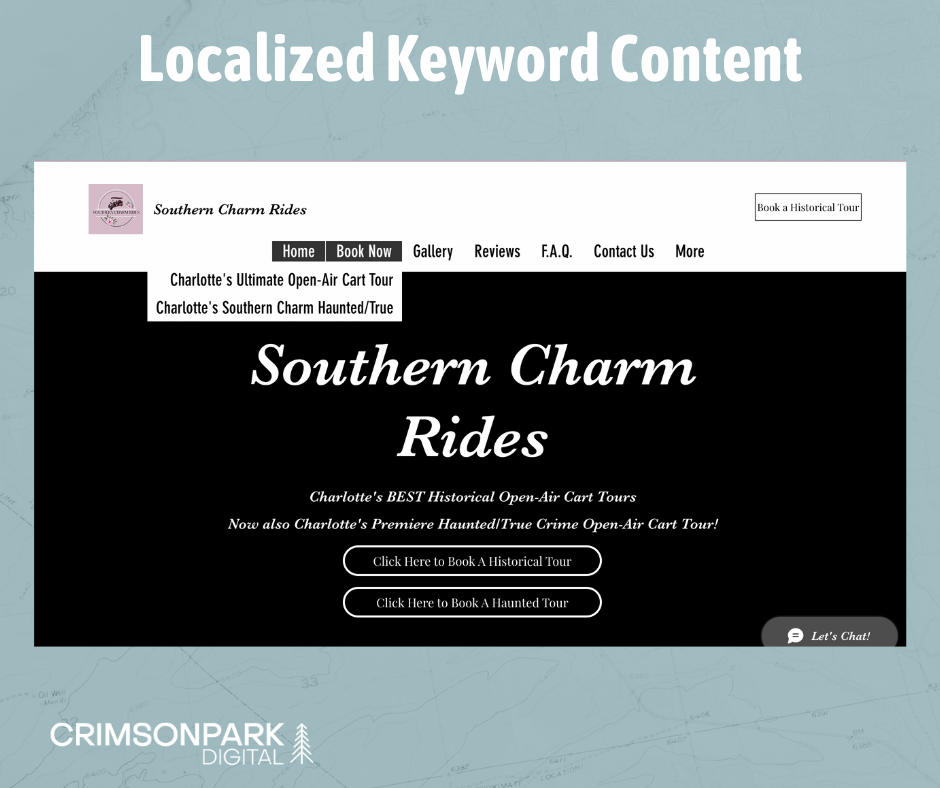Optimizing Local SEO for Hospitality Brands
Local SEO, or Local Search Engine Optimization, is important for hospitality businesses aiming to thrive in the digital age. Today, more customers use the internet to find local services and brands are wise to utilize a local SEO agency to get their listings ranked and seen. Improving local SEO can greatly affect a hospitality business’s success by making it more visible online.
What is Local SEO?
Local SEO optimizes digital channels to make your business visible to nearby customers searching for relevant services or properties. This visibility not only drives foot traffic but also builds credibility and trust within the local community.
How does it help hospitality businesses? By connecting online and offline, and attracting and keeping customers in their local area. Local SEO includes Google Business Profiles (which showcases your customer rating and reviews), Yelp profiles, website optimization, and other channels to guide people to a specific place.
Traditional SEO vs. Local SEO
Traditional SEO focuses on improving a website’s visibility by targeting popular keywords and a larger audience, regardless of their location. Local SEO uses a more specific approach, making a website more visible in local search results by optimizing for location-specific keywords and strategies to attract nearby customers
Essential Channels for Local SEO in the Hospitality Industry
It’s extremely important to optimize each digital touchpoint (where a prospective customer or visitor might encounter your business) for local SEO. This means your branded channels need to include keywords that are relevant to both what your brand offers and its geographic location.
The following are essential local SEO channels that hospitality brands should focus on:
Google Business Profile
Claiming and optimizing Google Business Profiles (formally known as Google My Business or GMB) listings is vital because it ensures that your online business information is accurate and visible when potential guests search for products or services in your local area.
You can display important information such as your address, phone number, operating hours, service area, and promotions. Additionally, you can share photos and videos, and visitors can submit reviews.
Having this information on your Google Business Profile helps build trust with potential guests, and motivates them to interact with your business – ultimately leading to more people visiting your physical location.
Here’s how to set up your Google Business Profile:
- Claim your listing.
- Claim ownership of your GBP listing, if you haven’t already, using one of Google’s verification processes to confirm your affiliation with the business.
- Provide accurate business information.
- Make sure your property’s name, address, phone number, website URL, and operating hours are all accurate.
- Ensure your brand’s name is consistent across all online channels.
- Provide a detailed business description that is both compelling and highlights what sets your hospitality group apart from the competition.
- Select the right categories.
- Choose relevant business categories that accurately describe your destination, services, or offerings.
- Be as specific as possible to appear in the most search results.
- Upload high-quality images.
- Photos should be high-resolution and depict the exterior, interior, and other features of your business.
- Remember to update your images when things change. This will ensure that your profile shows an accurate representation which will help people know what to expect when they arrive.
Google Business Profile Best Practices
It’s important to remember to keep your Google Business Profile up to date with the most accurate information, to maintain positive local SEO results.
Add these tasks as ongoing reminders for GBP maintenance:
- Update business hours if they change, or you’ll have different hours for a holiday.
- Respond promptly to all reviews, both positive and negative, with professionalism and gratitude. Try not to sound robotic in your responses to encourage more guests to write reviews.
- Monitor and respond to questions from potential customers in the Q&A section of your company’s GBP.
- As you add attributes, update them (for example, add Wi-Fi availability or wheelchair accessibility).
- If applicable, utilize the appointment booking feature for direct guest engagement.
- Utilize the Google Posts feature to share updates, promotions, events, and other relevant content regularly to your profile.
Yelp Optimization
Many people open the Yelp App to utilize the “nearby” map when searching for restaurants, hotels, and other attractions. Companies should capitalize on this search engine to ensure they are capturing potential customers while they’re “hot” in their querying process.
To optimize Yelp for local SEO purposes, it’s essential to properly claim and maintain your Yelp profile. A well-optimized Yelp hospitality profile can actually appear in local Google or Bing search results, increasing your business’s visibility to potential guests in your area. This exposure can drive more foot traffic and website visits as well.
Yelp offers features for guest engagement, such as responding to reviews, posting updates, and answering questions. Active engagement with customers can lead to positive interactions and stronger relationships, and encouraging satisfied customers to leave reviews on Yelp can enhance your online reputation. Positive reviews act as endorsements and can influence others to patronize your business.
The steps for claiming a Yelp profile and best practices for maintaining it are similar to what we outlined above for Google Business Profiles.
Optimizing Your Hospitality Website for Local Search
In order to capture demand when it’s available in the search results, hotels, restaurants, tour groups, and other travel destination brands must strategically optimize their websites for localized content queries.
The following techniques will drive traffic for local search terms to your website:
Incorporating Local Keywords in Website Content
Incorporating local keywords is fundamental to improving your website’s local search visibility. Local keywords are search terms that include geographical information relevant to your property.
To start, conduct thorough keyword research to identify the most relevant local keywords for your hospitality brand. These might include terms like “hotels in [your city],” “[your city] restaurants,” or “[your city] bed and breakfast.“
Once you’ve identified these keywords, strategically place them throughout your website’s content. This includes incorporating them into navigation and headings, meta descriptions, page titles, within the body text, and in blog articles.
It’s essential to ensure that the usage of keywords feels natural and doesn’t disrupt the readability of your content. Google may see excessive use of keywords or incorrect placement of keywords on your website as spam. This can result in a decrease in your E-E-A-T rating, and kill any local SEO gains already achieved.
Structuring Website Content for Local Relevance
Structuring your hotel or restaurant website’s content with local relevance in mind enhances the user experience (UX), and signals to search engines that your business is relevant to local searchers and their queries.
One effective approach is to create location-specific content that addresses local topics, events, and attractions. Consider publishing blog posts, guides, and articles about local happenings. This not only provides valuable information but also establishes your website as a go-to resource for both visitors and locals.
Showcase local customer testimonials, success stories, or case studies on your website. These authentic narratives can resonate with local audiences and build trust.
To enhance the localized user experience, ensure that users can easily find the nearest location if you have multiple branches – especially when using a mobile device. Include location-specific maps, contact information, and clear directions on your website.
Other Channels for Local Tourism and Hospitality SEO
If your brand is listed on local directories, TripAdvisor, Booking.com, or other hospitality-focused channels, optimizing them for local SEO is a must. Maintain up-to-date information on all directories that feature your business to enhance customer experience and trust, and avoid a backlash from inaccurate information.
Make sure each channel displays the same features and high-level information (operating hours, contact information, etc.) for consistency. Remove any outdated details or images and replace them with the most accurate portrayal of your business for the best results.
The right digital channels for your business will depend on what drives customers to you locally. It’s also important to look through directories to see where your competitors are listed. Your brand should use the same channels as your competitors to offer options to people looking for information.
Local SEO Best Practices
Once all online platforms are optimized for local searches, you can use additional methods to draw guests to your physical locations.
Consider the following best practices to continue building a solid online presence and reputation:
Online Reviews and Reputation Management
Encouraging and responding to online reviews is crucial for local hospitality SEO because it directly impacts your online reputation and search rankings. Positive reviews not only build trust in a first impression, but also signal to search engines that your business is credible and relevant.
Encouraging reviews from satisfied visitors can boost your overall rating, while responding to reviews, whether positive or negative, demonstrates your commitment to customer satisfaction.
This engagement not only helps manage your reputation but also enhances local search visibility.
Mobile-Friendly and Responsive Design
Mobile devices play a pivotal role in local search, as an increasing number of users turn to their smartphones to find nearby businesses and services, with “near me” search queries. Having a responsive website design that adapts seamlessly to various screen sizes is also vital and ensures that your website is user-friendly and fully accessible on mobile devices.
Google also prioritizes mobile-friendly websites in its search rankings, making responsive design a crucial factor in local SEO. Failing to optimize for mobile can result in a poor user experience, increased bounce rates, and decreased visibility in local search results, ultimately affecting your ability to attract local visitors to your hospitality business.
Social Media for Local Hospitality SEO
Social media usage can have a significant and sometimes surprising impact on local SEO for tourism businesses and hospitality groups. Regular social media content publishing boosts overall online visibility, increases brand authority, drives website traffic, and encourages customer engagement and community-building.
Integrating social media into your local SEO strategy is essential for staying competitive in the digital landscape and attracting local customers to your hospitality business.
Optimize Channels With SEO Services
To appear in more local searches, it’s important to have a comprehensive SEO and content marketing strategy in place. These two digital tactics go hand-in-hand to drive new and returning visitors to your website and get people through the door of your business.
A local SEO agency is a group of professionals with search engine optimization expertise who are skilled at optimizing online listings for companies hoping to capitalize on local search terms.
Partner with our local hospitality and tourism SEO pros to unlock the potential to dominate your local market, attract more customers, and watch your business thrive in the digital age. Request a free consultation here.
Frequently Asked Questions
Why is SEO important in the tourism industry?
SEO is vital in the tourism industry because it enhances online visibility, drives organic traffic, and ensures that potential travelers can easily find and choose your destination or services. It helps tourism businesses stand out in a competitive market, increases bookings, and fosters a positive online reputation, ultimately boosting revenue and growth.
How can SEO be effectively utilized to improve a travel and tourism website’s visibility?
Effectively utilizing SEO to improve a travel and tourism website's visibility involves thorough keyword research, content optimization, and creating a responsive website for mobile-friendliness. Local SEO efforts, including accurate listings and reviews on platforms like Google Business Profile and TripAdvisor, play a crucial role.
What is local listing management?
Local listing management refers to the process of creating, optimizing, and maintaining a business's online listings or profiles on various local directories, search engines, review sites, and social media platforms. This practice ensures that accurate and consistent information, including business name, address, phone number, hours of operation, and other essential details, are available across all channels.
Do hotels need to hire agencies for local SEO services?
Yes, hotels can benefit significantly from hiring agencies for local SEO services. Agencies possess the expertise and resources needed to navigate the complexities of local SEO, including optimizing Google Business Profiles, managing online reviews, and implementing effective local keyword strategies.




